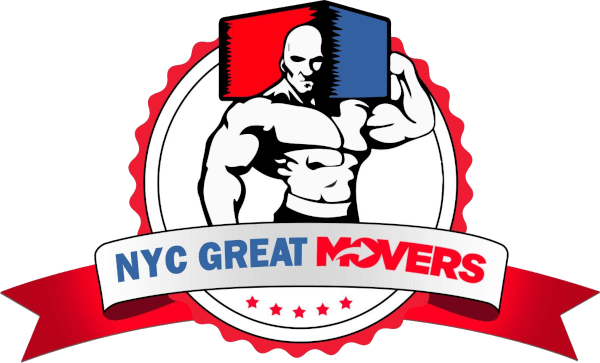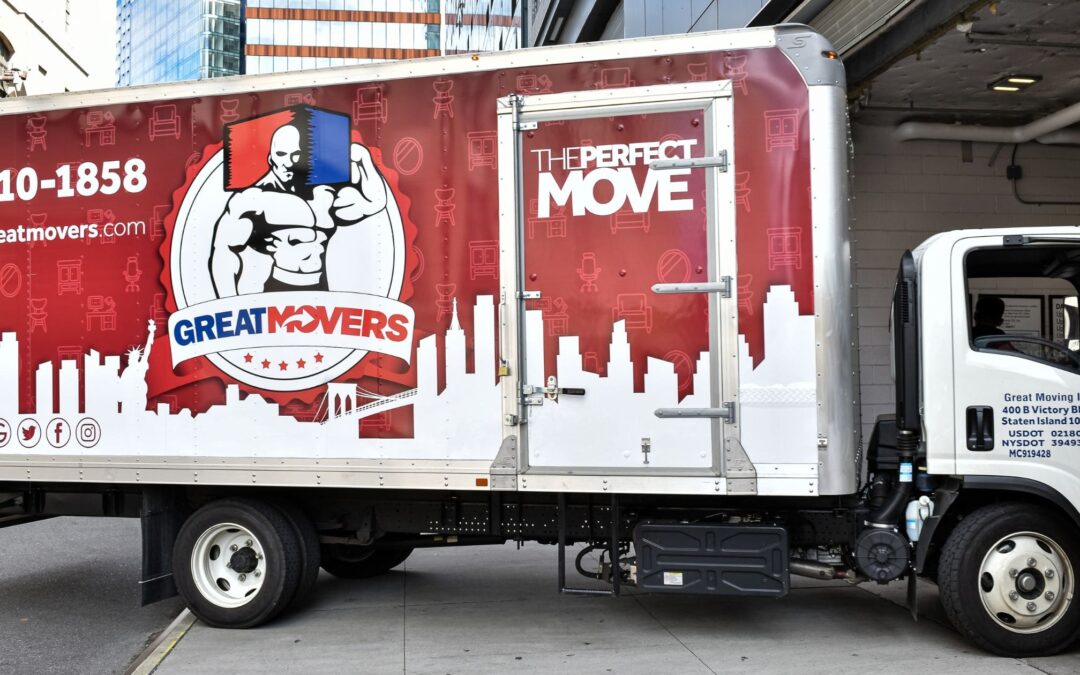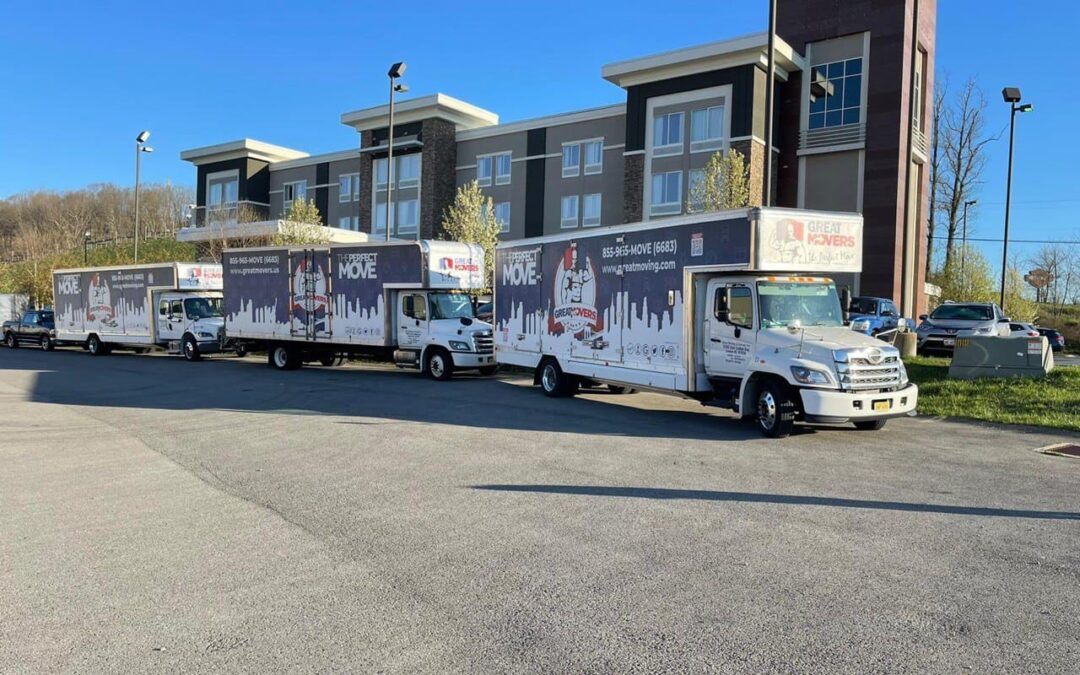The average American moves around 11 times in their lifetime whether for a new job, to increase their house size, or to simply move to a new location. Whatever your reason for moving, the fact remains that if you want to move, you’ll need to create a budget. Depending on where you live, it might cost more or less based on supply and demand. Even within the same state, moving costs can vary. For example, if you are moving to New Jersey from New York City, you might find that New Jersey movers are cheaper than the ones you might find in NYC due to demand.
With that said, there are plenty of not so great movers wherever you go. If you want to avoid getting scammed or just hiring bad movers, you should do some research and choose from a few movers. The best NJ movers will be upfront about their costs, answer all of your questions, and have the necessary licenses and insurance to keep you protected. If it’s your first time hiring movers, all of the terms might be confusing. Hopefully, the following information can clear up some confusion and help you choose the right Jersey City movers.
Labor Time
Depending on what New Jersey mover you choose, they might charge an hourly rate, fixed rate,or by weight/box. You won’t know what kind of rates the movers charge unless you speak to them directly. Many will have an online form you can fill out to receive a detailed quote, which will break down the charges.
Choose the labor option you feel most comfortable with. In general, if you’re making a local NJ move, you’ll be charged an hourly rate. What is considered a local move? Most movers define it as a move where the two locations are within 50 miles or less. With that said, many NJ movers consider a move from NJ to NYC and vice versa a local move, so consider yourself lucky if that is the move you are making!
The benefit of a local mover is that you don’t have to worry if you have a few more boxes than you expected. After all, it’s not like 3-4 more boxes will add on hours of extra work. Now if you don’t mention 20+ boxes or so, your final bill might increase. Most NJ movers have been in the business long enough to give you a general estimate based on the size of your apartment.. Not surprisingly, smaller apartments will be cheaper to move than larger ones. However, you can generally expect to pay around $500-$600 for a studio apartment and up to $4500 for a 4+ bedroom apartment.
When it comes to long distance moves, you’ll have to be more precise with your movers as most charge either by weight or volume. As you might expect, the more you have, the more you will pay. Besides reducing the amount of things that you are moving, the other way to save money on long distance moves is to take advantage of the consolidated shipping option that many movers offer. As the name suggests, you’ll be sharing the truck with other clients. Just keep in mind that the delivery window for this option can be between 6-10 days.
To save money, you should do all of the initial legwork yourself. That means packing and disassembling your furniture before the movers arrive. To make it even easier, you should move all the boxes into the room closest to the door so you can reduce how far the movers need to walk. While most movers do offer full-service options, these will be more expensive as they will charge you for the hours it will take to pack your items as well as materials they will use such as boxes, tape, etc.
Travel Time
In addition to labor, you should also consider travel time for the movers. So what exactly does travel time cover? For most moving companies, the cost covers the moving crew driving to your initial location and the time it takes for them to drive from the final location back to the office or garage.
If you hire a trustworthy moving service, they will give you the travel time in their initial quote after you call them or fill out the online form. The closer the movers are to your destinations, the lower the fee. So if you’re moving within New Jersey, you should try to find a company in your zip code. Don’t forget to mention any extra stops you might need to make as that can also increase the travel time.
Additional Fees
Depending on your current or new residence, you could be charged additional fees depending on your needs. For example, if you are moving from or to a walk-up, most movers will charge a stair fee. As well, moving to a highrise might mean that the movers have to provide a certificate of insurance, which generally tacks on an additional fee. Additional fees should not be excessive, especially if you have detailed everything you need from them. If anything, it should be a couple hundred dollars if that. Before signing the final bill of lading, make sure to check everything before so you don’t accidentally pay for fake added fees.
You should also ask about the insurance coverage they offer for your belongings. All moving companies will provide free partial valuation, which will only reimburse you around $0.60/pound for an item that is damaged or lost during the move. For expensive items like cameras, TVs, or antiques, it won’t cover the cost of replacement at all. In those cases, you should purchase full moving coverage so that you can get reimbursed for the full amount. Licensed moving companies are required to also have full valuation, but you will need to pay for it. Depending on the moving company, they may offer full moving insurance or they might be partnered with a third-party option.
You can avoid any surprises at the end of your move by being as upfront with your movers as possible. Always let them know about your living situation including stairs, elevator usage, parking situation, and more. All of these can help give you a better idea of how much you should budget for your move.
Avoiding Scam Companies
You don’t want to go for the first movers you find. You should spend some time doing some research and looking up reviews on Yelp, Google, and the Better Business Bureau. Many movers also post their Department of Transportation license on their site, so you can look their information up to make sure they are still in good standing. If they don’t have their number listed, call them up and ask for it. All legal moving companies are required to have an official DOT number in order to work. When you look up their number, make sure that the name and address matches up to their website and that the license is actually active. You should also ask them for a certificate of insurance even if you don’t need one. This form lists out important information such as the company’s address, insurance information such as coverage amount and expiration date. When checking the certificate of insurance, make sure the company has the following:
- Umbrella coverage
- Cargo insurance
- Workers Compensation
- Automotive liability
- Liability insurance
Once you’ve narrowed down the search to 3-4 movers, call each of them up and ask for referrals from recent customers. Or, better yet, if you have friends or family members that have used one of the movers you’re considering, ask them for information. Hearing directly from satisfied, or unsatisfied, customers can help you avoid potential issues like lost or damaged goods or unprofessional workers.
As well, make sure to ask your movers questions and pay attention to their answers. If they are able to answer everything quickly and clearly, they are likely reputable movers. If they get angry or can’t give you a clear answer, you should try a different company even if they are the cheapest option. Paying a little more upfront can end up saving you more money down the line as you won’t have to worry about lost or damaged items.
Getting the Best Deal
When shopping around for NJ movers, you don’t want to go with the cheapest prices as that can often indicate a scam, or at least movers that are untrustworthy or unprofessional (or both). For the most part, the prices shouldn’t fluctuate too drastically between companies so if one is significantly cheaper than the others, you should take it as a red flag. Most companies should be within $20-$30 from each other.
There are times you might be able to get a discount. For example, if you are moving during off peak season, moving companies might be running a promotion. As well, some companies might charge you more if you move on the weekends or if you need to make a last minute move. That’s why it’s so important to reach out to multiple companies. If you end up finding a moving company you like but they are charging additional fees in comparison to others, you can always ask if they will price match. Many will and even if they don’t it doesn’t hurt to ask.
Conclusion
Ultimately, the movers cost in New Jersey will vary based on the quality of service and the type of job you need. If you’re going for a full-service option, you can expect to pay at least $1,000 for a studio. However, if you want to save some money (and who doesn’t) you can pack everything yourself and can reduce that cost by 50 percent.
Once you know what you need and have hashed out the details with your NJ movers, make sure to read any fine print and always ask questions if you have issues. If you have complaints, always make sure to reach out to the company to let them know and see if you are able to get a discount from the initial fee, especially if the movers were unprofessional or seemed to dally during the move to increase the time it took to move everything.
FAQ
I live in a walk-up. How much do movers charge per flight?
That depends on the moving company, but usually you will be charged anywhere between $10-$20/flight.
Will I have to pay more if I want to move during the weekend?
Each moving company is different and some will charge more for weekend moves. Great Movers, however, will charge you the same amount regardless of what day you move.
How much should I tip the movers?
Your tip should reflect the level of service and degree of difficulty for your move. In general, you should tip around $4-5 per person/per hour. However, if you think the movers did a great job, you can always tip more!






